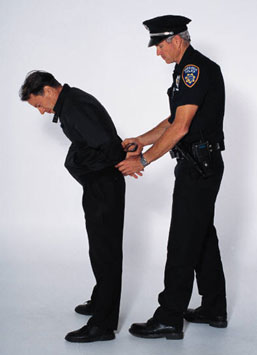

If you've watched a crime drama, you've probably heard a police officer read an accused criminal his Miranda rights. Every time a person is arrested in the United States, he or she must be read the following statement:
"You have the right to remain silent. Anything you say can and will be used against you in a court of law. You have the right to an attorney. If you cannot afford one, one will be provided at no cost to you."
While the actual words of the Miranda warning come from a Supreme Court case, Miranda v. Arizona, the underlying rights are all found in the Bill of Rights. Four of the 10 amendments deal with the rights of the accused.
They provide a range of protections, including the right against illegal search and seizure, the right to an attorney, the right to a fair trial by jury in which you can call witnesses and have a lawyer, and if found not guilty, the right not to be tried twice for the same crime (double jeopardy).
To view the protections of the accused, click on each amendment below:
Some of the terms above may be unfamiliar to you. The right against self-incrimination means that you do not have to give evidence against yourself (hence the right to remain silent). Due process means a person cannot be placed in jail without a legal proceeding. Protection from cruel and unusual punishment means that the state is forbidden from extreme punishments like torture or forms of death that are particularly painful.
In this activity, you will follow the saga of a clown criminal and his run-in with the law. After each scene, check off rights of the accused that you witnessed in the scene.
The whole series of videos that followed the clown through the legal system is an example of due process. "Theft of a clown car" is not a serious enough charge to require a grand jury, which is mostly for murder cases.
The whole sequence of arrest and trial following a defined legal procedure is an example of due process. The clown could not have been convicted without the police following the law. In fact, when the police or prosecution fail to follow the constitution, a suspected criminal can be set free.
A fair process is vital to our criminal justice system to try and minimize the number of people who are convicted but are really innocent. The system is willing to risk a guilty person's being let go in order to prevent someone who is not guilty from going to jail. The Bill of Rights gives the government a great responsibility in making sure everyone is treated properly.